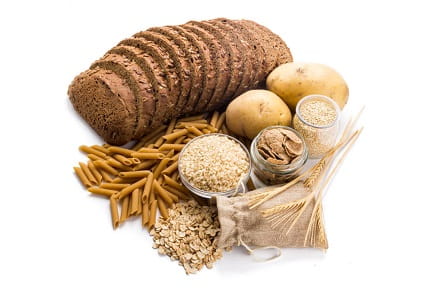Sometimes it seems like everywhere you look, carbs are the enemy. No-carb, low-carb, gluten-free and keto are hot trends, so does that mean that all carbohydrates are bad? Well, no. For most of us, it’s just a matter of choosing the right kinds of carbs.
“Good” vs. “bad” carbs
The thing to remember is that not all carbs are created equal, and different types of carbs are handled differently inside your body. All of your body’s processes run on sugar as fuel—but ideally, not spoonsful of table sugar!
The best carbs are known as “complex” carbohydrates. These contain lots of fiber and good nutrients, they digest slowly and have a low glycemic index, which means that they’re slow and steady in their release of glucose. This helps keep blood sugar levels consistent. The worst carbs, called refined or “simple” carbohydrates, have little to no nutritional value. They digest quickly, causing blood sugar levels to spike and then crash.
What to eat: Good carbs
Make your carbs count by eating good-for-you foods made from whole grains, like:
- Oatmeal and other whole-grain cereals
- Brown rice
- Whole-wheat breads, crackers and pastas
- Popcorn
Other great options include:
- Legumes, such as chickpeas, beans, lentils and peas
- Non-starchy veggies
- Whole or cut fruit (rather than juices)
Starchy vegetables, like potatoes, are still healthy in moderation. Just stick with versions other than French fries and potato chips!
What not to eat: Bad carbs
Try to limit your intake of simple carbs, like:
- Candy (except dark chocolate, which is healthy!)
- Cookies, cakes and pastries
- Sodas and other sugary drinks
- Fruit juices (though better than sodas, they are still mostly sugar)
- “White” grain foods, like white breads, pastas and rice
- Foods with added sugars
Bottom line
The USDA recommends making half your grains whole, which simply means choosing 100% whole-grain products at least half the time, over those that contain refined white grains. As for sugar, the American Heart Association values the importance of sugar in our diets, but recommends that men eat no more than nine teaspoons of added sugar (that which doesn’t occur naturally in food), while women should limit added sugars to six teaspoons daily. As with most things, moderation is key.




